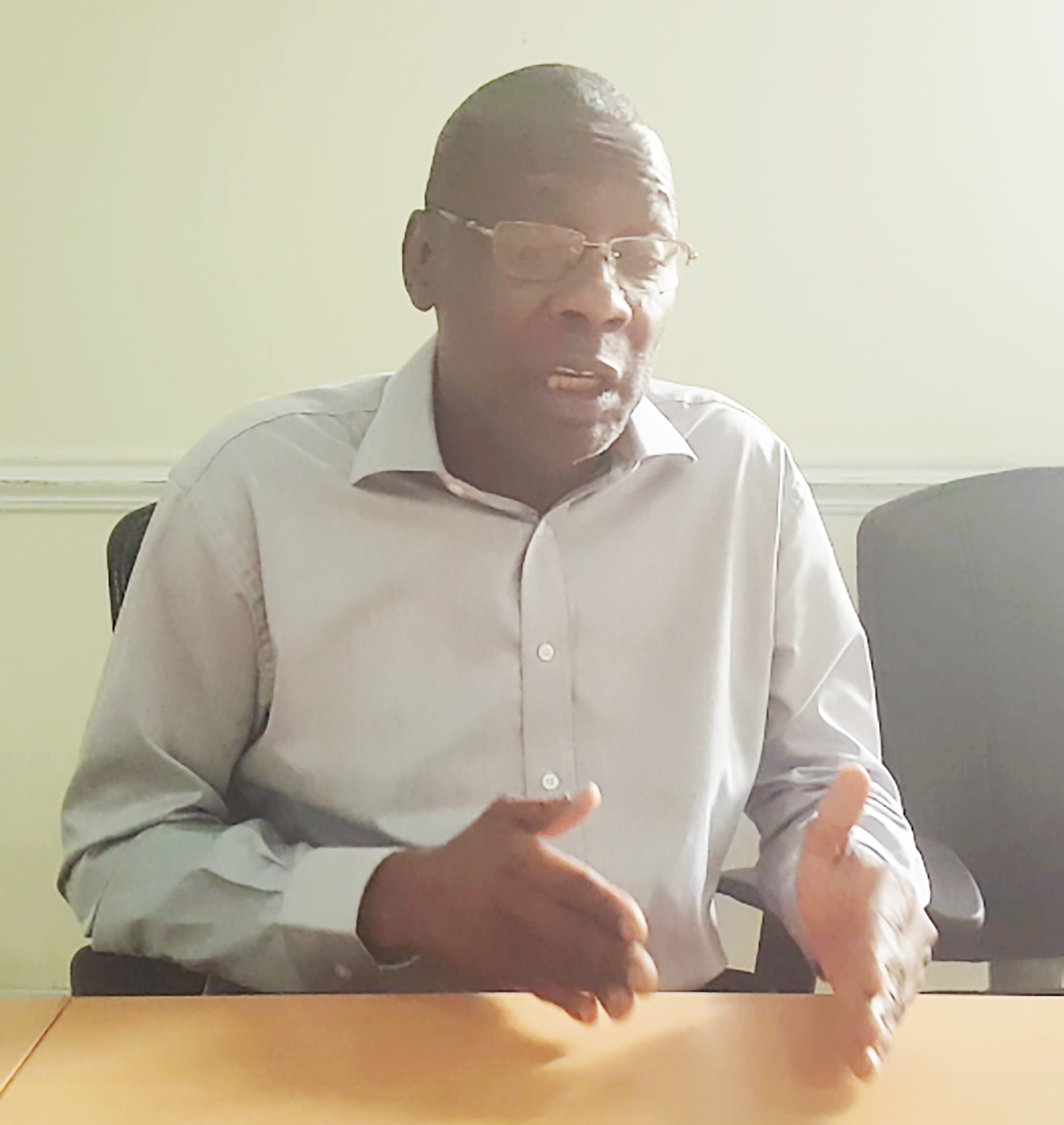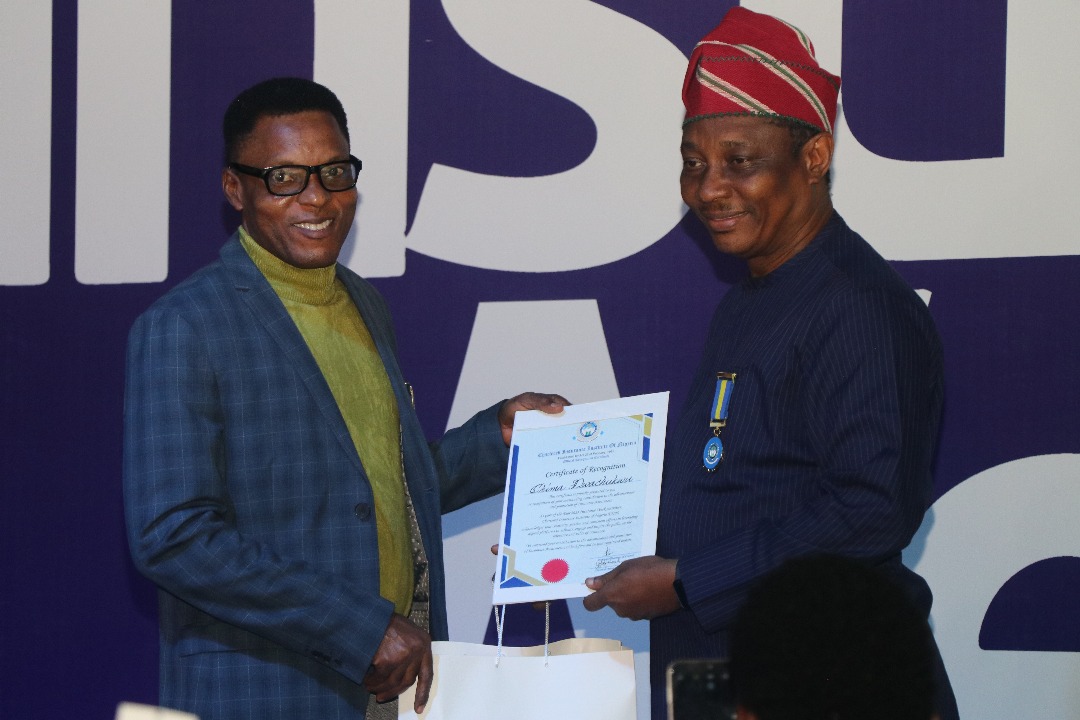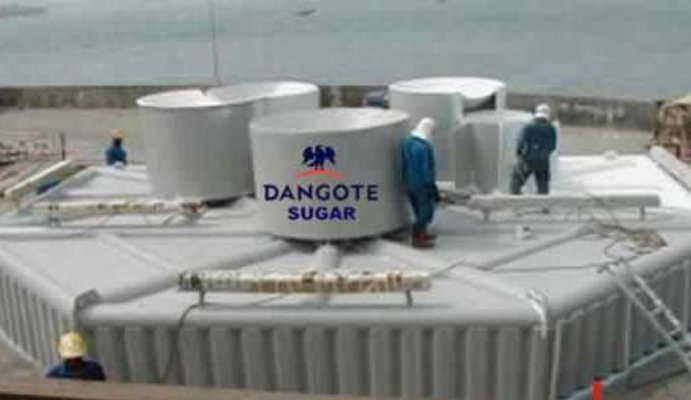Mustafa Chike-Obi is an interesting subject for any serious financial journalist to interview. As an international investment banker with a Goldman Sachs’ pedigree, the pioneer Managing Director/CEO of Assets Management Corporation of Nigeria (AMCON), now Executive Vice Chairman, Alpha African Advisory, tapped by the Federal Government in the heady days of Nigeria’s own peculiar financial crisis that impacted heavily on the banking industry, to manage the bad bank set up to save banks from themselves, he talks a lot of sense when asked to speak on the global as well as the Nigerian financial markets and economy. PHILLIP ISAKPA and STEVE OMANUFEME met with him to ask him what he thought the economy and Nigerian financial markets hold in the near, medium and long-term. But he started, in his usual characteristic upfront self, by asking: “What do you want to hear from me?”
We would like to know your thoughts concerning the economy, what is happening in the financial services industry and, also, pick your brains on the system of recovery and bad loans in banks?
We cannot divorce anything in 2018 from politics. Politics will cast a big shadow over everything we discuss, whether it is security or economy. In an election year, politics has a big impact on everything, so certain economic decisions that may make sense in the long run, nobody will touch them.
So, going back to the economy, to be able to make things for ourselves and reduce our dependence on importation requires major sacrifices, from the common people to the president of the country. And it would be tough for two years. Politically, it is painful to tell people what they are to sacrifice, but leadership is letting people know what they have to sacrifice. One of the greatest leaders in the world, according to the bible, is Moses, and he led the Israelites through a brutal experience and he always said he would lead them to the Promised Land and he made sacrifices himself. So, if we want to save the nation, we must find leadership that tells us what we need to do and tells us the result of it and make personal sacrifices for us to get there.
Yesterday [Thursday 1 February 2018], we were discussing informally about the foreign reserves numbers being touted by the government and you said you had a view on it. What’s your view?
Well, the problem I have with reserves is that there’s too much misunderstanding about reserves. We look at reserves as a combination of things that it is not. For most Nigerians, reserves represent a sort of savings; and reserves are not savings. Reserves are monies that have been earned in foreign exchange primarily from government, and CBN buys the foreign currency and substitutes naira in its place. That naira is then distributed among the tiers of government and is spent. Reserves can’t be spent twice, they are not savings. The only true savings are the excess crude accounts and the sovereign wealth funds. So, reserves are not savings, and the only benefit to reserves is that they give you confidence that you can pay for foreign goods.
Apart from reserves, the upward movement in the ease of doing business table, is also mentioned?
The ease of doing business is not an economic indicator. It is a nice thing, but it doesn’t mean much wh
en you go from 150 to 130. It is not easy to do business in Nigeria. But let’s look at the indicators. Is the GDP growing faster? Is inflation lower? Is naira stronger or weaker? What is it that is better now?
Let’s look at the banks. They have been declaring fantastic results since we came out of recession, but banking industry analysts say they are not doing a lot of asset creation?
You keep saying we are out of recession, which is a technical term, really technical. There is a technical recession and there is a growth rate at which you improve the lives of your people. Where we are now, should be double digits, so it means they are dying more slowly, but we are all dying. Two percent GDP growth for a population growth of three percent is unacceptable. So, I repeat, anybody that doesn’t have a convincing plan to achieve double digits growth should be rejected, whether Igbo, Christian, Muslim, doesn’t matter, without double digits growth, this country would not survive, you would defeat Boko Haram and another one would jump up. You can’t have over four million Nigerian people born every year and you don’t have jobs and future for them, you can’t do that for ever. If you want to survive as a viable state and the constitution says the priority of the government is security and welfare, if we can’t provide an environment for the people we are creating today in Nigeria, I don’t see us surviving as a viable nation in the next 10 years. So, let us subject them to the test, come and tell us how you are going to provide for the future of the Nigerian people. My minimum test is 10 percent GDP; tell us how you would do it, and if we believe your story, that is the person we are picking. Forget zoning, APC or PDP.
But INEC is not providing a platform for individual candidates, you must belong to a party?
Yes, I tell people if you really want to change Nigeria, then change the political parties. If you can’t change PDP or APC, how do you expect to change Nigeria? If you’re serious about it and there are enough of you , then you can change it. You tell people that PDP can’t be changed but you can change Nigeria, it is silliness. I’ve listened to all of them. There is nothing they are saying that they can’t do in APC and PDP, but the reason they are avoiding APC is because they know the presidential ticket is blocked; so they want to go somewhere else they can challenge for the presidency. If all these people get together, they can change APC. They can go in there tomorrow and say, we want a new chairman. But if you can’t do that, how are you going to change Nigeria, a much more difficult task? So you give up on APC, PDP or AD and you believe you can change Nigeria, which includes the parties? It is crazy. So let the APC or PDP, pick the guy who can grow GDP at double digits. In fact, let all of us pick those guys then we choose between 10 plans.
Some would ask how do you grow the economy at double digits?
I can give you a plan now that in the next year, we would grow by double digits, but we would all make sacrifices and we need a leader that can lead people there. A leader that can be trusted, can show the vision and who is willing to make personal sacrifices; but the plan is easy to conceive.
We have heard you say regulators are too powerful in Nigeria, and you don’t think 10-year tenure for bank CEOs should be a policy matter. Well, the current Emir of Kano, Muhammadu Sanusi II, (Sanusi Lamido Sanisu, as he then was), who headhunted you to head AMCON, was instrumental in making CBN so powerful, as it was under him that the 10-year tenure policy was made?
This is my issue and I have tremendous respect and friendship for Sanusi. He came in during a crisis and focused on stability. He said let’s keep everything stable and he did a fantastic job stabilizing the economy. What was needed next was a growth-minded CBN governor and that is what I am advocating.
What of the forex window they opened?
You see, you can’t create a problem and then solve the problem you created and then pat yourself on the back for solving it. The forex window was out of the problem they created, where people couldn’t take their money out and bring their money in. Now they can bring money in, but if there was no policy like that there would have been no need for the forex window. So you create a problem and then pat yourself on the back for solving it. You create a recession and we pat ourselves on the back for recovery. No, we didn’t have to have the recession, we policed ourselves into a recession. I don’t give anybody credit for solving a problem that was created by them. You said the banks are making record profits in naira. In 2011, GTBank made N100 billion in profit and naira was at 150/$1; that was roughly $700 million. What did they make last year, around N160 billion, which is around $500 million dollars? They made less last year than in 2011?
You haven’t answered the question about lack of asset creation by banks?
Let me tell you about assets creation. You mean giving loans. Very few businesses can safely be lent to with 26 percent interest rate. It is difficult for banks to find businesses that they can lend to after thorough analysis and get their money back. It is a lot easier to buy treasury bills. At some point, they were making 18 to 20 percent on treasury bills and Nigerian bills are riskless because
Nigeria has never defaulted on its treasury bills. Why won’t I buy treasury bills at 20 percent rather than lend money to him at 30 percent with the chance that he would default? It is rational. We have not created incentives for the banks. If interest rate went down to five percent and banks could lend money at eight percent to business, many of these bad loans will become good ones, because people will be able to service their debts at eight percent. But at 26 percent, all the money they make is used to service the loan at that rate. The policy of CBN can’t be divorced from the concept of bad loans. And the policy of CBN will encourage or discourage banks from making loans to the real sector. And worse than that, when they say they are giving loans to the real sector at low-interest rate, it doesn’t work, because when you give a farmer a loan at six percent, but his customers are borrowing at 26 percent; his customers are going to squeeze him, but if everyone is at six percent, it works. But one person at six percent and everyone at 26 percent, it ends up killing the one at six percent.
But the availability of credit has been a problem for very long?
No, that is not true. When Sanusi [Lamido Sanusi] came in, he dropped interest rates to five percent and when that happened, and there was a bit of problem, he then started increasing it to prevent inflation. So my point is that there is policy response to one issue and a different policy response to another issue. At the time when interest rates were at five percent, there was no lack of credit, he had pumped money into the system. So that had not always been a problem. The reason why you have high interest rate is because you focus on two things.
In economy management you can focus on two things, you can say you’re focusing on foreign exchange and interest rates, and this has consequences. The less productive you are, the higher you have to keep interest rates. And the consequences of the high interest rate are lack of credit and bad loans; but the biggest impact that nobody wants to talk about is the cost of servicing Federal debt. I believe that 60 percent of revenue is used for debt servicing.
If interest rate dropped to five percent, it would drop from 60 percent for debt servicing to 25 percent, which is manageable. When you look at your monetary policy architecture, you have to state what is important to Nigeria, and what the costs of it are. I would vote for low interest rate, and double digit growth and the consequences would be temporary high inflation and temporary weaker foreign exchange, but I would employ five million people a year and I would rather have five million people working and dealing with inflation than not working at all. That’s my view.
When you ask Americans, they tell you to manage interest rates, but when they had their financial crisis they dropped their interest rate to zero; but they want us to keep ours high because they are going to keep selling their goods to us. American interest is to have a market in Africa; American interest is not for Nigeria to become a manufacturing country. Interest rate was at negative in Europe for a time and inflation was at four percent, so inflation can be higher than interest rate for sustainable growth.
Everyone feels it in the economy?
That is what I would like to caution on, and it is a serious caution. Don’t tell people things are better when they are feeling more pain. I would say most Nigerians don’t feel better off than they did in 2014. If you remember your financial worries in 2014, and now, you’d admit to me that it is much worse. People are now asking N5000 for food; a lot of families are not having three meals a day. If we are sensitive as a government we would tell of plans to relieve their pain. My advice is not a partisan but purely a love of Nigeria advice. Tell us how you plan to make it better in a way that we understand and then lead by example.
How can the issue of powerful politicians, interfering in the market and distorting capitalism, be resolved?
What we can do is to highlight the problems and then to solve them requires whole policy discussion that can take us days. But lets us agree that it is a problem and we should be looking at who can solve the problems because, the solution can be mitigated one way or the other. That’s my short answer. It will take too long to answer you.











